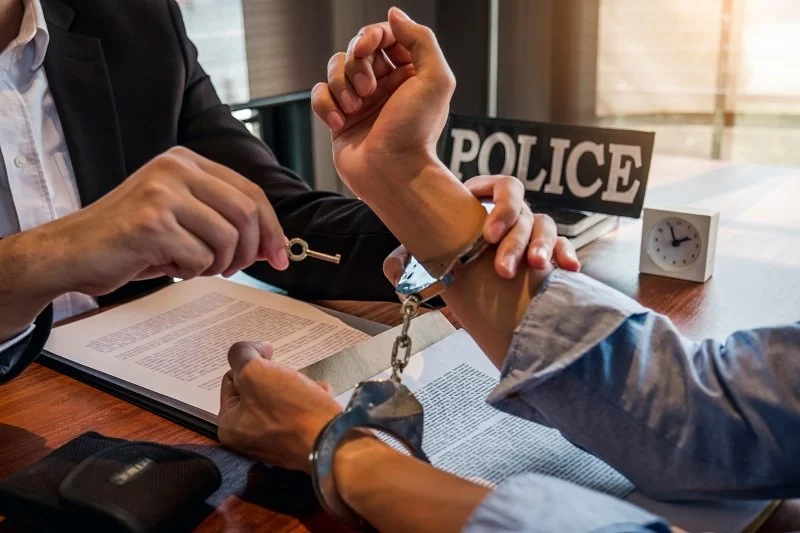
- what-probation-and-parole-actually-mean - What Probation and Parole Actually Mean
- legal-differences-between-probation-and-parole - Legal Differences Between Probation and Parole
- conditions-attached-to-each-type-of-release - Conditions Attached to Each Type of Release
- real-cases-that-highlight-the-differences - Real Cases That Highlight the Differences
- violations-and-legal-consequences - Violations and Legal Consequences
- how-esplawyers-can-assist-in-probation-or-parole-matters - How ESPLawyers Can Assist in Probation or Parole Matters
1. What Probation and Parole Actually Mean
Though the terms are often used interchangeably, probation vs. parole are two very different aspects of the criminal justice system. Both serve as alternatives to incarceration or extensions of sentence supervision, but they apply at different stages in a person’s legal journey.
Probation is a court-ordered period of supervision instead of serving time in prison. It allows a person to live in the community under certain restrictions, often following a guilty plea or conviction. Parole, on the other hand, occurs after a person has already served part of their prison sentence and is released under supervision before completing the full term.
2. Legal Differences Between Probation and Parole
2.1 Who Grants It
Probation is typically granted by a judge as part of the sentencing process. Parole is granted by a parole board after reviewing an inmate’s behavior, rehabilitation efforts, and readiness to re-enter society.
2.2 When It Happens
Probation happens instead of jail or prison time. Parole happens after a portion of incarceration has already been served. This timing plays a critical role in the rights and restrictions involved in each scenario.
2.3 Legal Authority Involved
Probation is monitored by probation officers under the supervision of the court. Parole is overseen by parole officers and is typically managed by a state’s department of corrections or parole board.
3. Conditions Attached to Each Type of Release
3.1 Common Conditions
Whether on probation or parole, individuals are often required to comply with conditions such as maintaining employment, attending counseling or drug treatment, avoiding contact with certain individuals, or abiding by curfews. These conditions are non-negotiable and tailored to the offense and risk level.
3.2 Key Differences in Enforcement
Probation violations typically result in a court hearing and potential sentencing to jail or prison. Parole violations can lead to a revocation hearing and being returned to prison to serve out the remainder of the sentence.
4. Real Cases That Highlight the Differences
In a 2022 California case, a young man convicted of drug possession was sentenced to two years of probation with mandatory counseling. His clean record allowed him to remain out of jail altogether.
Meanwhile, in a separate case, a parolee who had served time for armed robbery was granted early release after serving 60% of his sentence. Despite positive progress, a minor violation of his parole conditions led to a review by the board and partial re-incarceration.
These examples underline the importance of understanding the terms and potential consequences tied to probation vs. parole.
5. Violations and Legal Consequences
5.1 What Counts as a Violation
Violations can range from failing drug tests and missing meetings with supervisors to committing new crimes. Both probation and parole violations carry serious legal consequences, though probation violations often involve judicial discretion, while parole violations are more administrative.
5.2 Repercussions
A single mistake—missing an appointment or failing to report a new address—can result in a warrant, court appearance, or jail time. The impact varies based on the nature of the violation and the jurisdiction's policies.
6. How ESPLawyers Can Assist in Probation or Parole Matters
If you're dealing with a probation violation or preparing for a parole hearing, having a skilled legal advocate matters. At ESPLawyers, we specialize in post-conviction legal strategies, including representing clients during parole board interviews and probation modification hearings.
We understand that navigating these systems can be overwhelming, especially when freedom is on the line. Our team works to reduce sentences, challenge unfair conditions, and support your reintegration goals. Whether you need guidance on your rights or full legal representation, we’re ready to step in and help you move forward.
Let ESPLawyers be your trusted resource in understanding the legal differences between probation and parole—and in making sure your rights are protected every step of the way.








